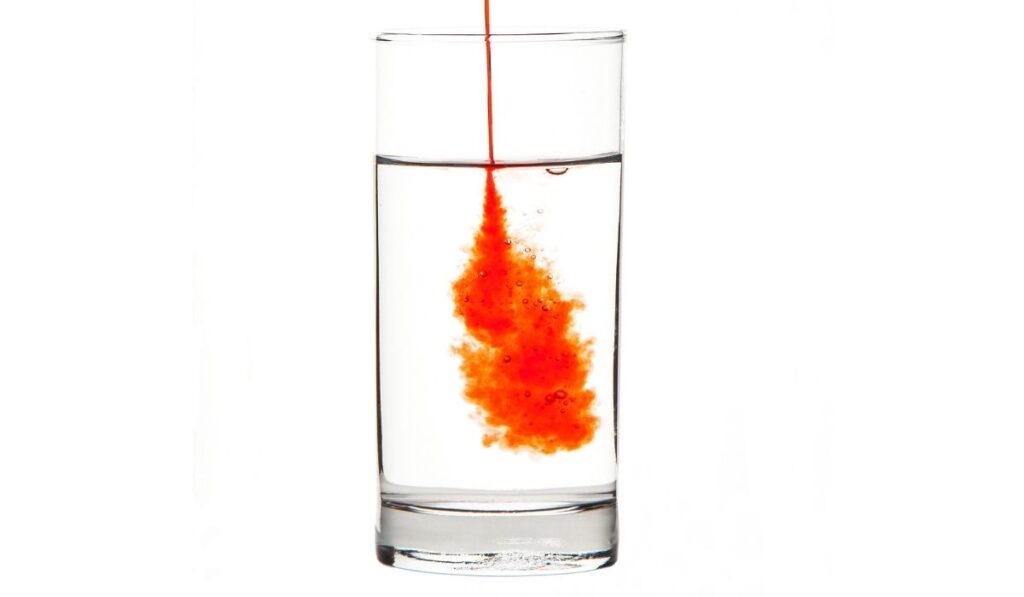Water enhancers are all the rage. Go into the grocery store and you’re likely see an aisle full of them. From Kool-Aid to Crystal Light, it seems like every brand has thrown their hat into the ring. But when it comes to water enhancers and dental health, what do you need to know?
While water enhancers are generally better for your teeth relative to sugary drinks like soda, you should still consume them in moderation and use a straw if possible. Common ingredients like citric acid and sugar can promote tooth damage and decay. Pure water is always preferred.
If you want to learn more about water enhancers and your teeth, we’ve got all the answers. Let’s take a look at the ingredients commonly found in water enhancers so that you can be sure you’re making healthy decisions for your body.
What’s in Liquid Water Enhancers?

Liquid water enhancers are a great way to add a little extra flavor to any glass of water. While they might not pack the same kind of punch as a soda or juice, they can still add a little extra something to water without such high amounts of sugar and other unhealthy compounds. So, what’s in this stuff, anyway?
Liquid water enhancers can be made from all kinds of ingredients. In most cases, they contain a sweetener, like sucralose, acidity from citric acid and other flavor compounds.
Others may contain minerals to help hydrate the body or caffeine to keep you awake and alert, like the MiO Energy Naturally Flavored Liquid Water Enhancer (on Amazon). Ingredients depend highly on the brand.
Since water enhancers usually come in a relatively small package that offers a lot of flavor, they often contain ingredients you may not come across in regular flavored beverages.
Take sucralose, for example: while you might find it in some diet sodas, it’s commonly used in water enhancers because of its concentrated sweetness. With sucralose, you get a sweeter drink without a lot of ingredients.
Another popular water enhancer ingredient is propylene glycol. This additive is often found in cooling systems and liquid vape fluid.
In most cases, the ingredients you should be wary of if dental health is a concern are all the additive chemicals and the acidic components.
Are Liquid Water Enhancers Bad for Your Teeth?
A lot of folks are adding water enhancers to their daily consumption list. It’s an easy way to jazz up a boring glass of water and still get some hydration.
Since most brands use low-calorie ingredients, water enhancers can also help you limit your caloric consumption, especially when compared to sugary sodas and sports drinks. But when it comes to your teeth, what do you need to worry about?
The first thing you should be worried about when it comes to water enhancers and your teeth is the acidity. Because most brands use ingredients like citric acid, you should be mindful of how these ingredients damage your enamel. Another thing that makes water enhancers bad for your teeth is the sugar content.
Acidic anything is bad for your teeth. The acidic compounds found in water enhancers can easily damage and wear down your enamel. Once your enamel is damaged, it’s much easier for bacteria to get into nooks and crannies in the mouth and create decay.
The next ingredient that can have an impact on your dental health is the sugar content. While most water enhancers usually use some sort of alternative sweetener, you should still be concerned about sugar content. Always check the label to make sure you know what you’re consuming.
One tasty sugar-free option to try is Stur’s Classic Natural Water Enhance (on Amazon).
How to Enjoy Flavored Water Without Damaging Your Teeth

While water enhancers aren’t as damaging to your teeth as other sugary drinks like soda, you should still be careful when using them. Over time, some ingredients like citric acid or sugar can break down your teeth and cause tooth decay.
So, if you want to enjoy water enhancers, what do you need to know?
To enjoy water enhancers safely, use a straw. This will help limit the contact between your teeth and the damaging compounds in the water enhancers. It’s also good practice to not rely too heavily on water enhancers. Use them sparingly, and opt for pure water as often as you can.
Water enhancers aren’t just bad for your teeth; they can also affect other parts of your health. That’s why you should always be aware of what’s in your drinks. Read the label on your water enhancers to make sure you know exactly what you’re putting in your body.


